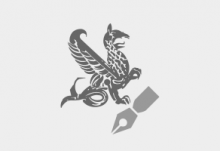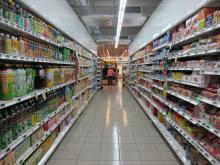Shelf life
Bulgarian authorities to withdraw Chocolate Eggs because of suspected Salmonella
Chocolate eggs and candies will be withdrawn from the market, after today. The Bulgarian Food Safety Agency was notified through the Warning and Cooperation Network that batches of Kinder eggs and candies are subject to withdrawal due to possible salmonella contamination.
Supermarket sales soar 35 pct
Greek supermarkets have cashed in over 615 million euros in just four weeks - i.e. in the first month of the coronavirus epidemic in Greece - as fear of what is yet to come led to consumers panic buying large quantities of disinfectants and food with a long shelf life.
- Read more about Supermarket sales soar 35 pct
- Log in to post comments
Pandemic and the market
The demand for certain commodities on the market has risen sharply - justifiably, when it comes to items of personal hygiene, or unjustifiably, when it comes to food with a long shelf life.
But this is not genuine consumer demand in normal circumstances. It would be criminal if some took advantage of the public's fear.
- Read more about Pandemic and the market
- Log in to post comments
Greek dairy still going strong despite shrinking market
Since the start of the economic crisis in Greece, the fresh milk market has taken quite a battering, as shrinking incomes have turned many consumers to products with a longer shelf life - such as HTST pasteurized milk, which lasts two to three weeks, or ultra-pasteurized milk, which can last up to nine months before the carton is opened - to avoid paying for a product that will go off before th
Every Year, Every Family Throws Away Food Worth 500 Leva
On average every household has 90 kg of disposed food worth 500 leva per year. This was announced by the Executive Director of the Bulgarian Food Bank, Tsanka Milanova.
The biggest percentage of the disposed food is by households (44%), followed by restaurants (33%), food stores (11%), institutions, production, etc., according to the calculations of the Bulgarian Food Bank.
Almost 4 Tons of Food will be Destroyed
Nearly 4 tons of food of animal origin will be destroyed after inspectors from the Food Safety Agency made more than 2,800 checks during the holidays, the BNR reported.
The most common violations are unauthorized food sales, shelf-life, non-compliance with storage conditions, and irregular food safety guarantees.
A shop was closed.
- Read more about Almost 4 Tons of Food will be Destroyed
- Log in to post comments
Bulgarian Food Safety Agency Starts Intensified Checks For the Christmas and New Year holidays
The Bulgarian Food Safety Agency starts today intensified checks for the Christmas and New Year holidays, according to bTV.
Food and beverage enterprises, wholesale warehouses, catering establishments, retail outlets, and supermarkets, will be inspected.
Inspectors will monitor the origin, expiry date, storage conditions and proper food labeling.
Salmonella found in chicken products
A batch of a chicken-based food product called Tou Hasapi Souvlaki Kotopoulo me Piperia has been withdrawn from supermarket shelves after an inspection by the the Hellenic Food Authority (EFET) revealed traces of salmonella.
- Read more about Salmonella found in chicken products
- Log in to post comments
Bulgaria's Ombudsman: Law on VAT Exemption for Donated Foods Not Working
Last year's legislation which allowed for donated foods nearing expiry date to be exempted from any value-added tax (VAT) does not work as the government has not done its job, Bulgaria's National Ombudsman Maya Manolova has said.
New EU Food Label Requirements Come Into Effect In December
As of December 13 the new EU Regulation 1169/2011 on the provision of food information to consumers comes into effect, reports the BGNES wire service.
All essential information on contents of processed foods and drinks and best before date must be in one area of the label, in large legible print.










